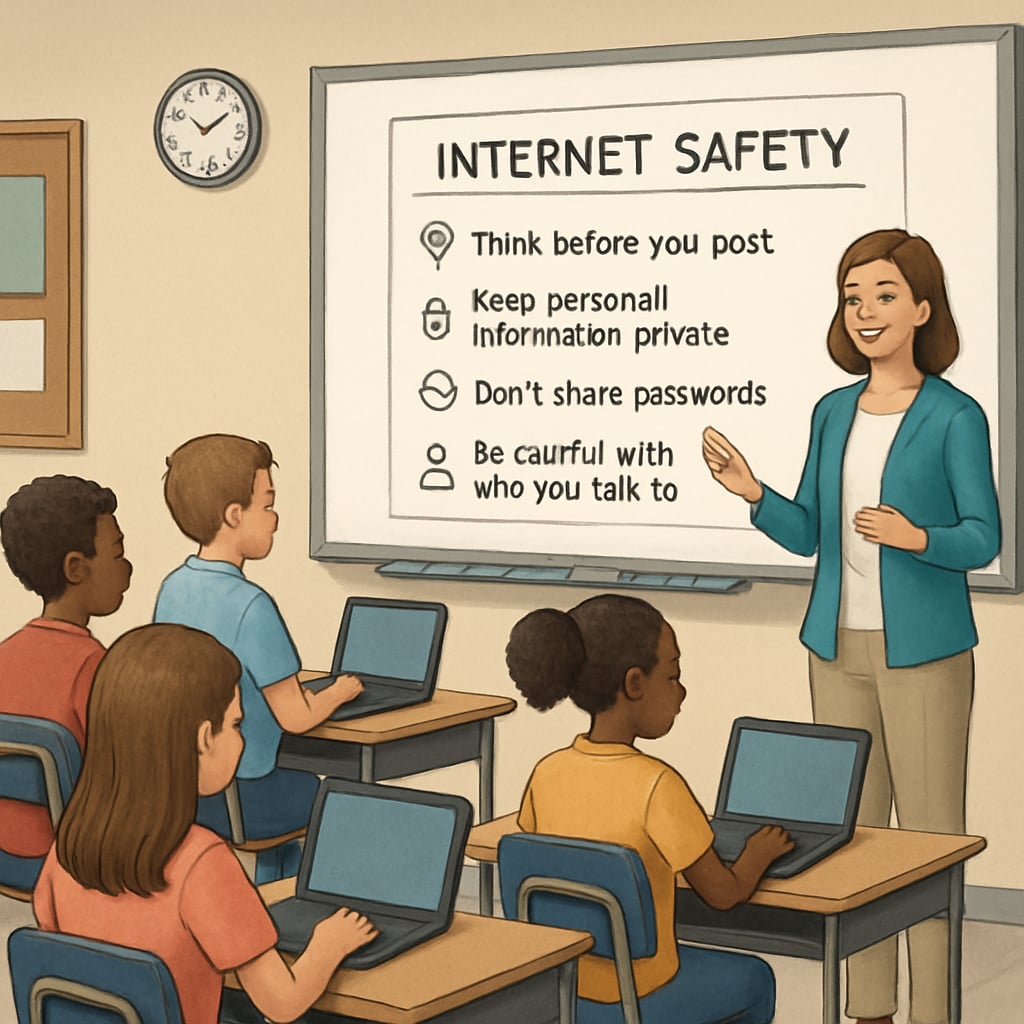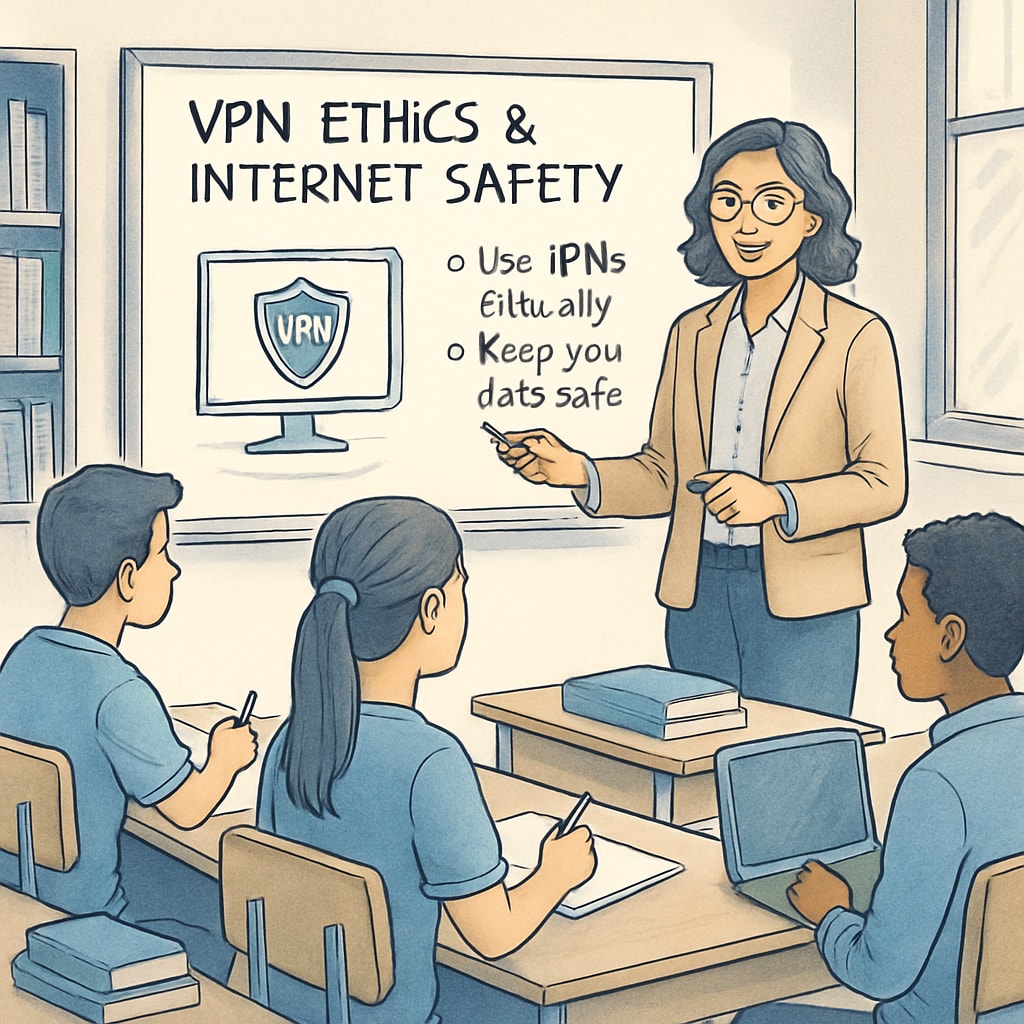The introduction of stricter age verification requirements in the UK, combined with the growing use of VPNs (Virtual Private Networks), has sparked significant discussions about internet safety. While these regulations aim to restrict minors from accessing adult content, they also highlight the urgent need for K12 education systems to foster digital literacy and responsible online behavior. This article explores the impact of these measures on education and how schools can help students navigate the complexities of internet safety and compliance.
Understanding the UK’s Age Verification Regulations
The UK government has implemented age verification laws to prevent underage access to adult content online. These regulations require websites hosting such material to verify users’ ages through various methods, such as credit card checks or third-party age verification services. While the intent of these laws is commendable, they have also prompted increased use of VPNs, which can bypass geographic restrictions and age verification mechanisms.
VPNs, designed to enhance privacy by masking IP addresses, can inadvertently enable minors to evade content restrictions. For educators, this presents a dual challenge: ensuring that students understand the purpose of age verification and equipping them with the knowledge to use the internet responsibly.

The Role of K12 Education in Promoting Digital Literacy
As technology becomes an integral part of students’ lives, schools bear the responsibility of teaching digital literacy and internet safety. Digital literacy encompasses a range of skills, including understanding online privacy, recognizing secure websites, and identifying appropriate content. Incorporating these lessons into the curriculum can empower students to make informed decisions about their online behavior.
Here are some strategies schools can adopt:
- Age-Appropriate Education: Tailor lessons to different age groups, addressing topics such as password security for younger students and VPN misuse for older ones.
- Interactive Learning: Use real-life scenarios and role-playing activities to engage students in discussions about internet safety.
- Parental Involvement: Provide resources and workshops to help parents reinforce these lessons at home.
By integrating these strategies, schools can create a culture of responsible internet use that aligns with the goals of age verification laws.
Addressing the Challenges of VPN Usage
While VPNs offer legitimate benefits, such as protecting user privacy, their misuse by students to bypass content restrictions poses significant challenges. Schools can address this issue by fostering open discussions about the ethical and legal implications of evading age verification measures.
For example, teachers can explain how age verification protects minors from harmful content and emphasize the importance of adhering to these regulations. Additionally, schools can implement technical safeguards, such as monitoring software, to detect and prevent unauthorized VPN usage on school networks. However, these measures should be complemented by education, as technical solutions alone cannot instill a sense of responsibility in students.

Building a Partnership Between Schools, Parents, and Policymakers
Effective internet safety education requires collaboration among schools, parents, and policymakers. Policymakers should ensure that age verification laws are accompanied by clear guidelines and accessible resources for educators. Meanwhile, schools and parents can work together to reinforce digital literacy lessons both in the classroom and at home.
Some actionable steps include:
- Hosting community events to raise awareness about age verification laws and their importance.
- Providing training sessions for teachers on the latest internet safety tools and practices.
- Encouraging open communication between students, parents, and educators about online behavior and challenges.
When all stakeholders are actively involved, the collective effort can ensure that students grow into responsible digital citizens.
Conclusion: Preparing Students for a Digital Future
The age verification regulations in the UK, coupled with the rise of VPN use, underscore the need for comprehensive internet safety education in K12 schools. By promoting digital literacy, addressing the misuse of VPNs, and fostering partnerships among educators, parents, and policymakers, schools can prepare students to navigate the digital world responsibly and ethically.
In an era where technology is ubiquitous, equipping students with the tools to make safe and informed choices online is not just an educational priority—it is a societal imperative.
Readability guidance: This article uses short paragraphs, interactive lists, and a clear structure to enhance readability. Transitions such as “however,” “in addition,” and “for example” ensure smooth flow between ideas. Technical terms like “VPN” and “age verification” are explained for accessibility.


